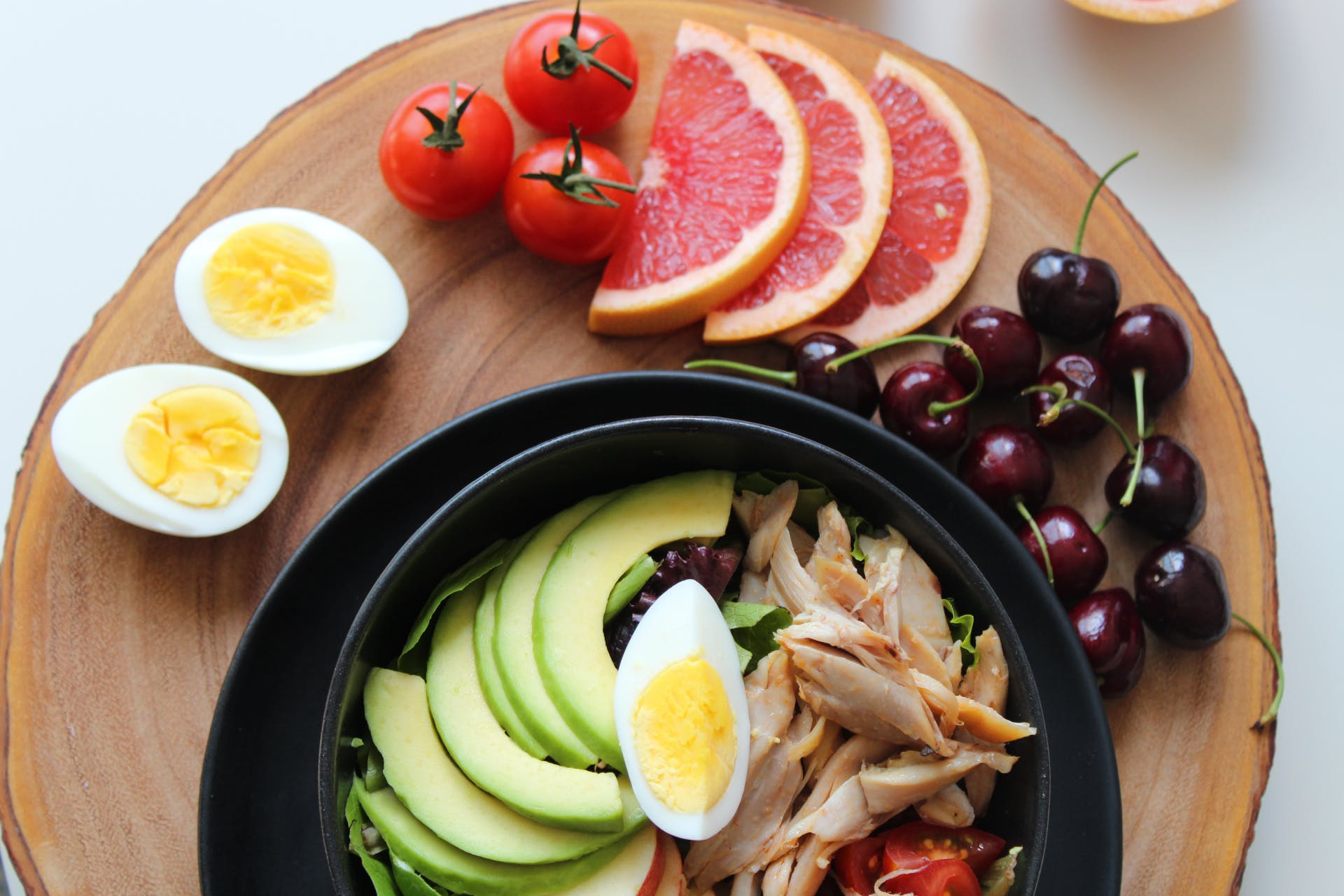Nutrition Tips for Breastfeeding Moms: Nourishing Yourself and Your Baby
Welcome to a special blog, where we celebrate the season of love while prioritizing the well-being of our amazing breastfeeding moms. Valentine's Day is not just about romantic gestures; it's also an opportunity for self-love and self-care, especially for those tirelessly caring for their little ones.

Embracing the natural and beautiful act of breastfeeding allows you to provide your newborn with essential nutrients and antibodies.
As a breastfeeding mother, it is crucial to prioritize your nutrition to ensure both you and your little one benefit from the highest quality of care and nourishment
The Department of Health Australia highlights the remarkable health benefits that breastfeeding offers. Research indicates that breastfed infants are less likely to experience conditions such as intestinal inflammation (necrotizing enterocolitis), diarrhea, respiratory illness, middle ear infection, type 2 diabetes, and childhood leukemia.
A healthy breastfeeding session needs healthy choices, good maternal nutrition is essential for your baby's sleep and baby's developing nervous system which is achieved through breastfeeding. This means that eating a particular food can make or break your and your baby's breastfeeding diet together.
Question: What Should I Eat While Breastfeeding?
To lessen visits to the baby's doctor, nursing mothers should adopt healthy eating habits to prevent common issues such as trouble sleeping for both you and the baby.
Many breastfeeding moms are particular about their food choices, a habit often developed during pregnancy due to significant dietary changes. However, nursing moms must prioritize hydration by adding two or three cups of extra water to their daily intake among other healthy foods.
This is essential for both the mother and the baby's well-being. Proper hydration supports overall health and can contribute to better sleep for the baby, reducing the need for frequent doctor visits.
Let's explore some foods to avoid while breastfeeding, as well as some breastfeeding-friendly and healthy foods that contribute to a wholesome breastfeeding experience.
When aiming for a healthy diet, especially for breastfeeding moms, lean beef stands out as an excellent choice. It is known for being rich in protein, healthy fats, vitamins, and essential minerals, all of which are crucial for producing high-quality breast milk for the developing nervous system of the baby and are also beneficial for the mother's diet.
Most breastfeeding moms, in particular, require at least an extra 25 grams of protein daily to support both their own nutritional needs and those of their baby. Lean beef serves as a convenient source to meet this additional protein requirement.
It is also recommended that you have a varied diet and not just indulge in the same sets of food. Typically, a variety of mixed meat, eggs soy milk, beans, and veggies do the job really well.

Additionally, many healthcare providers recommend eating fish as they contain high amounts of protein and omega-3 fats and are low-mercury fish which are deemed essential for the baby's development.
Some examples of these fish are salmon, catfish, and light canned tuna to name a few. There are certain types eat fish foods to avoid when breastfeeding, and some of these are, king mackerel, swordfish, tilefish, or any other foods that have a potentially high amount of mercury in them.
Lastly, the best sources of nutrition for milk supply also happen to come from dairy products. Cow's Milk primarily provides calcium among many other important nutrients that provide health benefits for both the mother and the baby. Among the breastfeeding-friendly foods, cow's milk protein has been associated with increased levels of secretory IgA in breast milk which keeps the infant protected from developing an allergic reaction to the cow's milk protein.
Some examples of breastfeeding-friendly foods include:
-
Lean proteins, such as poultry, fish, and tofu
-
Dairy products, such as milk, cheese, and yogurt
-
Fruits and vegetables, including fresh, frozen, and dried varieties
-
Whole grains, such as oatmeal, brown rice, and whole wheat bread
-
Healthy fats, such as avocados, nuts, and seeds
Question: Are there Fruits to Avoid While Breastfeeding?
Fruits are nature's desserts, and some of them even make up the whole meal themselves. However, not all fruits are good, and citrus fruits are not especially for breastfeeding moms.
-
Citrus Fruits
Fruits like oranges, kiwi, and grapefruits are not good as they can cause discomfort and digestive issues in some babies when ingested through breast milk.
-
Canned Fruits with Syrup
Canned goods usually use many types of additives to preserve the shelf life of certain foods, some of these are fruits. Canned fruits use syrup to make sure that they can stay longer until consumed. As such, they are chockful of sugar and syrup which are not good for the mother as they can also cause digestive issues.
-
High-Sugar Fruits
Fruits are generally okay to consume when moderated and this is especially true for breastfeeding mothers. This also potentially alters the taste of the breast milk and can make it harder for breastfeeding mothers and the breastfed baby himself to consume it.
These are only some of the foods to avoid or eat while breastfeeding but, ultimately, you must decide what should be avoided as most babies don't produce the same reaction and some specific breastfeeding foods are more beneficial for you than other foods.
Tips for Maintaining a Healthy Diet While Breastfeeding:
Prioritize a Balanced Diet: Include a variety of nutrient-dense foods from different food groups in your meals to eat while breastfeeding. Avoid processed and sugary snacks, as they may lack essential nutrients and can affect your energy levels.
Stay Hydrated: Drink plenty of water throughout the day to support milk production and overall health. A breastfeeding woman is prone to be dehydrated, so aim for at least 8-10 glasses of water daily.
Include Omega-3 Fatty Acids: Ensure you get enough omega-3 fatty acids, especially DHA, crucial for your baby's brain development. Include fatty fish like salmon, sardines, and mackerel in your diet. Vegetarians can opt for plant-based sources like flaxseeds, chia seeds, and walnuts.
Focus on Calcium and Vitamin D: Meet your calcium and vitamin needs for bone health. Include dairy products, fortified plant-based milk, leafy greens, and calcium-rich foods in your diet. If possible, spend some time outdoors for natural vitamins from sunlight.
Listen to Your Body: Pay attention to hunger cues and adjust your breastfeeding diet, based on your needs, especially if you are feeling stressed or sleep-deprived. Taking care of your well-being is crucial during breastfeeding.
Question: Are There Certain Foods to Avoid when Breastfeeding?

Mercury-rich fish
Mercury is a toxic metal that can affect the developing nervous system of infants. To minimize exposure it is advisable to limit the consumption of fish with high mercury levels, eating fish such as sharks, swordfish, king mackerel, and tilefish. Instead of eating fish, choose low-mercury alternatives like salmon, trout, and cod.
Allergenic products
Admittedly, some of these foods are great to eat while breastfeeding, however, only in moderation as mothers and infants may be at a higher risk of developing allergies, especially if there is a family history. To potentially reduce the risk, consider avoiding or limiting common food allergens to avoid them, such as peanuts, tree nuts, eggs, soy, wheat, fish, and shellfish.
However, the connection between maternal diet and allergies is complex, and consulting with a healthcare professional is highly recommended.
Caffeine
While moderate caffeine intake (1-2 cups of coffee) is generally considered safe, excessive amounts of limited caffeine intake can lead to irritability, poor sleep patterns, and digestive issues in babies.
Spicy and gassy foods
Certain spicy foods or gassy foods, such as solid foods like hot sauce, onions, and garlic can cause discomfort in some breastfeeding babies. If you notice that it makes your baby gassy or fussy after consuming these gassy foods then, consider limiting or avoiding them. However, if the baby's developing nervous system reacts it is important to monitor the individual response to spicy foods.
Highly processed foods
Meats like beef, chicken, and pork offer a high value of protein that is important for child growth and for the mother's health, however, some particular foods are generally not ideal due to solid foods being highly processed.
Some of these are hot dogs, alcohol, and energy drinks as they have been known to be linked with an increased risk of heart disease among many others. While they do provide proteins and minerals, it is generally expected that everyone, not just mothers, consume these in moderation.
Question: Can I drink alcohol? If I can, how much alcohol is considered okay?
While it is generally safest to avoid alcohol while breastfeeding, moderate alcohol consumption is not known to be harmful to the infant. The Centers for Disease Control and Prevention (CDC) and the NHS both state that moderate consumption, defined as up to 1 standard drink per day, is not known to be harmful to the infant. It is recommended to wait at least 2 hours after a single drink before nursing. However, exposure to alcohol above moderate levels through breast milk could be damaging to an infant's growth and sleep patterns.
Question: Why is My Milk Supply Low?

If a breastfeeding mom feels like she's not producing enough milk despite healthy eating habits, well, there could be a few reasons for it.
One factor is the impact of certain foods on breastfeeding. Avoid strongly flavored foods, as their flavors may transfer to breast milk, causing discomfort for both mom and baby. This can lead to latching problems.
Another reason might be infrequent feeding, which can signal to the body that breast milk production is already enough. In the early months after conception, breast milk production stays constant. If the body thinks there's extra milk, it may limit production, resulting in a low milk supply sometimes.
Suppose issues persist, it's a good idea to seek professional advice from a lactation consultant or healthcare provider to get the right guidance tailored to your needs.
Conclusion:
Taking care of yourself is essential to taking care of your baby. By prioritizing a balanced and nutrient-rich diet, you'll not only meet your own needs but also provide the best possible start for your precious little one.

This Valentine's Day, give the gift of closeness with the comfiest newborn baby carrier that keeps your little ones close. Make a choice that goes beyond traditional gifts and flowers; create lasting memories of love and connection.
Let's remember that the journey of motherhood is a testament to the power of love.
Here's to a Valentine's Day filled with joy, connection, and the celebration of the incredible journey of motherhood. Share your love and tips in the comments, and let's uplift and support each other on this beautiful adventure!







Leave a comment (all fields required)